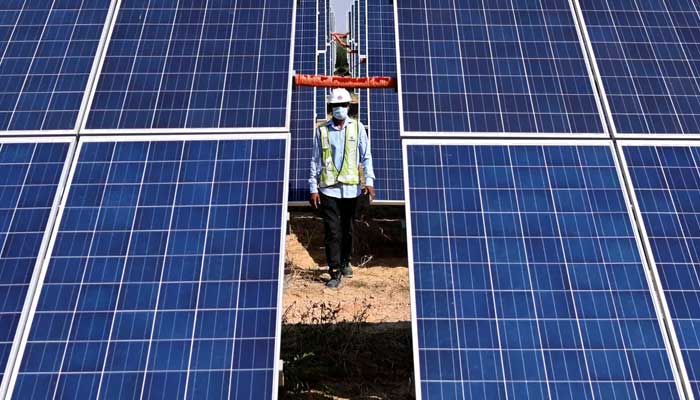Adani Scandal Exposes Challenges to India’s Renewable Energy Ambitions. The ongoing Adani Group scandal has cast a shadow over India’s ambitious plans to become a global leader in renewable energy.
As one of the largest conglomerates in India, Adani Group has been at the forefront of the country’s transition to cleaner energy, heavily investing in solar power, wind energy, and other green technologies. However, recent allegations and controversies surrounding the conglomerate have raised serious questions about the sustainability and transparency of India’s renewable energy drive.
The Adani Scandal Unfolds
The Adani Group, led by billionaire Gautam Adani, has faced significant legal and financial challenges in recent months. A report by a U.S.-based short-seller firm accused the conglomerate of stock manipulation, accounting fraud, and environmental violations. These allegations have led to a sharp drop in the value of Adani Group’s publicly traded companies, shaking investor confidence and triggering a broader financial crisis for the group.
While the scandal primarily centers on financial misconduct, its repercussions extend far beyond the business world. Adani’s vast investments in renewable energy projects have been seen as a key part of India’s push toward achieving net-zero emissions by 2070. As the government seeks to position India as a leader in the global clean energy transition, the controversy surrounding one of its biggest corporate players has raised concerns about the integrity of these efforts.
Adani scandal reveals issue faced by India
A Pillar of India’s Renewable Energy Push
Adani’s investments in renewable energy have been central to India’s clean energy strategy. The Adani Green Energy Limited (AGEL) has become one of the largest renewable energy companies in India, with the group planning to develop 25 gigawatts of renewable energy capacity by 2025. This ambition has aligned with India’s goal of producing 500 gigawatts of non-fossil fuel-based energy by 2030.
The Adani Group’s role in the renewable sector has garnered praise from both government officials and environmentalists, who see it as a necessary step in reducing India’s reliance on coal, one of the largest contributors to global greenhouse gas emissions. However, the recent scandal has raised concerns about the broader implications for India’s renewable energy sector.
Transparency and Accountability Concerns
One of the key challenges exposed by the Adani scandal is the lack of transparency and accountability in India’s corporate and energy sectors. The allegations against Adani include claims of inflating asset values and misrepresenting the true cost of renewable energy projects. If true, these practices could undermine the credibility of India’s renewable energy transition and erode public trust in the sector.
Experts have long warned about the need for greater oversight and regulation of the renewable energy industry in India. While the government has set ambitious targets for renewable energy production, concerns about corruption, mismanagement, and a lack of transparency in the execution of these projects have remained largely unaddressed. The Adani scandal has highlighted these weaknesses, raising fears that the drive for clean energy could be compromised by unethical practices.
Impact on India’s Renewable Energy Future
The fallout from the Adani scandal has created a ripple effect throughout the renewable energy sector in India. Several international investors, who had previously poured billions into Indian clean energy initiatives, are now reconsidering their positions in light of the allegations against Adani. This has led to a slowdown in investment in the sector, potentially delaying progress toward India’s renewable energy goals.
Furthermore, the controversy has raised questions about the long-term viability of India’s green energy transition if it continues to be dominated by a few powerful players with questionable business practices. Critics argue that the renewable energy sector needs to become more inclusive and diversified, with a broader range of companies and stakeholders involved in the development of clean energy projects.
In addition to the financial implications, the scandal has the potential to damage India’s reputation on the global stage as a leader in renewable energy. International partners, including major economies and environmental organizations, may become more cautious in their dealings with India if they perceive a lack of transparency or accountability in the country’s green energy initiatives.
The Road Ahead for India’s Renewable Energy Goals
Despite the challenges posed by the Adani scandal, India’s renewable energy ambitions remain an essential part of the country’s long-term development plans. The government has reaffirmed its commitment to achieving net-zero emissions by 2070 and expanding its renewable energy capacity in the coming decades. However, the path to this goal will require addressing the issues of transparency, corporate governance, and accountability that have been highlighted by the recent controversy.
To regain public trust and ensure the success of its renewable energy initiatives, India must take concrete steps to strengthen regulatory frameworks and improve oversight in the sector. This includes ensuring that renewable energy projects are implemented with full transparency, and that companies involved in these projects adhere to high ethical and environmental standards.
Additionally, there is a need for greater diversification within the renewable energy sector to avoid excessive reliance on a single corporate entity like Adani. By encouraging a more competitive and transparent market, India can create a more sustainable foundation for its green energy future.
Conclusion
The Adani scandal has underscored some of the significant challenges facing India’s renewable energy ambitions. While the country’s commitment to clean energy remains strong, the controversy has raised serious questions about the integrity and transparency of the sector.
To achieve its renewable energy goals, India will need to address these challenges head-on, ensuring that the transition to a sustainable future is built on a foundation of trust, accountability, and ethical business practices. Without these safeguards, India’s green energy ambitions may face significant setbacks, potentially delaying its progress toward a cleaner, more sustainable future.
Source: eNCA
In other news – Sean Diddy Combs’s bailed denied in a recent ruling
Sean Diddy Combs Denied Bail in Recent Court Ruling. In a recent court ruling, music mogul Diddy” Combs was denied bail after facing serious legal challenges. The decision has raised eyebrows in the entertainment industry and among his fans, as Combs continues to navigate a turbulent period in both his personal and professional life.
The Legal Battle Intensifies
Sean Diddy, known for his influence in the music industry and his successful business ventures, has recently found himself at the center of a legal storm. Read more



 Pope Francis dies aged 88 just hours after meeting JD Vance
Pope Francis dies aged 88 just hours after meeting JD Vance India Signals Readiness to Pursue Stronger, Strategic China Business Ties After Border Dispute Resolution
India Signals Readiness to Pursue Stronger, Strategic China Business Ties After Border Dispute Resolution South Korea’s president Yoon Suk Yeol faces calls to resign
South Korea’s president Yoon Suk Yeol faces calls to resign South Korea troops try to storm parliament after martial law declared
South Korea troops try to storm parliament after martial law declared Indian police arrest seven for breaking into Bangladesh consulate
Indian police arrest seven for breaking into Bangladesh consulate Saudi Arabia’s MBS takes up new Middle East crises in UAE visit
Saudi Arabia’s MBS takes up new Middle East crises in UAE visit President Joe Biden grants full unconditional pardon to son Hunter
President Joe Biden grants full unconditional pardon to son Hunter Justin Timberlake drops big news about his Forget Tomorrow World Tour
Justin Timberlake drops big news about his Forget Tomorrow World Tour Vladimir Putin warns of using all weapons if Ukraine acquires nuclear arms
Vladimir Putin warns of using all weapons if Ukraine acquires nuclear arms Donald Trump warns BRICS nations of 100% tariffs over plans against US dollar
Donald Trump warns BRICS nations of 100% tariffs over plans against US dollar